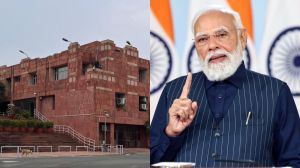Darkened lens
Jafar Panahis arrest is a reminder of how Iran continues to limit itself
On the pavement of my trampled soul the steps of madmen weave the prints of rude crude words. That was Vladimir Mayakovsky,supreme poet of the Bolshevik Revolution,driven to suicide by the terrible beauty he had gloriously celebrated. Jafar Panahi is no victim of self-delusion,and he didnt begin by celebrating the Iranian regime. He is the victim of an authoritarianism that fears the subtle free spaces created by an aesthetic engagement spaces which,intended or not,are laden with political implications and feels compelled to close them. Arrested on Monday night along with his wife,daughter and a number of guests,Panahi is not an overtly political filmmaker,although visibly on the side of Irans opposition since last Junes presidential election. The Tehran prosecutor says that Panahis arrest was not political either,but related to some crimes.
For the record,Panahi could not attend last months Berlin film festival because of a travel ban imposed on him after he had worn green the oppositions colour at the Montreal film festival. He had been detained last year after attending a memorial for Neda Soltan,the young woman shot dead during the first wave of protests. And his arrest came on a day two publications owned by Mehdi Karroubis another presidential challenger family were closed down. Above all,Panahis films,like those of many in Irans pantheon of iconic filmmakers,are almost wholly banned in Iran.
Disturbingly,Panahis arrest falls into a pattern. Irans artists and intellectuals are being increasingly intimidated,in a message that whoever is not with the government is against it,and by implication against the state. Panahis arrest will not gain the Iranian regime any friends at home or abroad.
- 01
- 02
- 03
- 04
- 05































